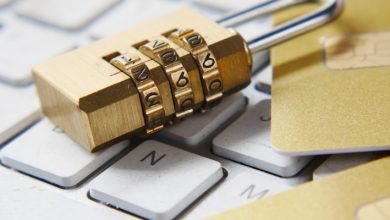What is a Firewall? How It Protects Your Crypto Assets

- Understanding the Basics of a Firewall
- The Importance of Firewalls in Safeguarding Your Crypto Assets
- How Firewalls Work to Keep Your Digital Investments Secure
- Types of Firewalls and Their Role in Crypto Asset Protection
- Firewall Features Every Crypto Investor Should Know About
- Tips for Maximizing Your Firewall’s Effectiveness in Protecting Your Assets
Understanding the Basics of a Firewall
Firewalls are a crucial component of cybersecurity that act as a barrier between your network and potential threats from the internet. Essentially, a firewall is like a security guard that monitors and controls incoming and outgoing network traffic based on predetermined security rules. By doing so, firewalls help prevent unauthorized access to your network and protect your sensitive data, including your crypto assets.
There are two main types of firewalls: hardware firewalls and software firewalls. Hardware firewalls are physical devices that are typically installed between your internal network and the internet, while software firewalls are programs that run on individual computers or servers. Both types work by analyzing data packets and determining whether to allow or block them based on the established rules.
Firewalls use a variety of methods to filter network traffic, including packet filtering, proxy service, stateful inspection, and deep packet inspection. Packet filtering examines data packets and makes decisions based on information such as source and destination IP addresses, port numbers, and protocols. Proxy service acts as an intermediary between internal and external networks, while stateful inspection keeps track of the state of active connections to make more informed decisions.
Deep packet inspection takes packet filtering to the next level by analyzing the actual contents of data packets to identify potential threats. By combining these methods, firewalls provide a multi-layered defense against cyber attacks and unauthorized access attempts. It is essential to configure your firewall properly and keep it updated to ensure maximum protection for your crypto assets and other sensitive information.
The Importance of Firewalls in Safeguarding Your Crypto Assets
Firewalls play a crucial role in protecting your valuable cryptocurrency assets from cyber threats. By acting as a barrier between your devices and the internet, firewalls monitor and control incoming and outgoing network traffic based on predetermined security rules.
Firewalls analyze data packets to determine whether they should be allowed to enter or leave your network. This process helps prevent unauthorized access to your crypto assets and sensitive information stored on your devices.
Without a firewall, your crypto assets are vulnerable to various cyber attacks such as malware, ransomware, phishing attempts, and hacking. By blocking malicious traffic and filtering out potential threats, firewalls act as the first line of defense against cybercriminals.
It is essential to configure your firewall properly to ensure maximum protection for your crypto assets. Regularly updating your firewall software and security rules can help keep up with the ever-evolving nature of cyber threats.
Overall, investing in a robust firewall is a critical step in safeguarding your crypto assets and ensuring peace of mind knowing that your digital wealth is protected from cyber risks.
How Firewalls Work to Keep Your Digital Investments Secure
Firewalls act as a barrier between your device and potential cyber threats, helping to keep your digital investments secure. They work by monitoring incoming and outgoing network traffic, allowing or blocking data packets based on a set of security rules.
Firewalls can be implemented as hardware devices, software programs, or a combination of both. They are designed to prevent unauthorized access to your network, helping to protect sensitive information such as your crypto assets.
By analyzing data packets and comparing them to a set of predetermined criteria, firewalls can effectively filter out malicious traffic. This helps to minimize the risk of cyber attacks and data breaches, safeguarding your valuable digital assets.
Firewalls can also be configured to create virtual barriers within your network, segmenting different areas to prevent the spread of malware or unauthorized access. This adds an additional layer of protection to your crypto assets, making it harder for cybercriminals to gain access.
Overall, firewalls play a crucial role in maintaining the security of your digital investments. By acting as a gatekeeper for your network, they help to ensure that only authorized users and data packets can pass through, reducing the risk of cyber threats and keeping your crypto assets safe.
Types of Firewalls and Their Role in Crypto Asset Protection
Firewalls play a crucial role in protecting your crypto assets from unauthorized access and cyber threats. There are several types of firewalls that serve different purposes in safeguarding your digital investments.
- Packet Filtering Firewalls: This type of firewall examines packets of data as they pass through the network and filters them based on pre-defined rules. It helps prevent unauthorized access by blocking malicious traffic.
- Proxy Firewalls: Proxy firewalls act as intermediaries between internal and external networks, inspecting incoming and outgoing data to ensure it meets security criteria. They provide an additional layer of protection by hiding internal IP addresses.
- Stateful Inspection Firewalls: Stateful inspection firewalls monitor the state of active connections and make decisions based on the context of the traffic. They are effective in detecting and blocking suspicious activities.
Each type of firewall has its own strengths and weaknesses when it comes to protecting crypto assets. Packet filtering firewalls are efficient in screening incoming data, while proxy firewalls offer enhanced security through proxy servers. Stateful inspection firewalls provide comprehensive protection by considering the state of connections.
By implementing the right combination of firewalls, you can create a robust defense mechanism for your crypto assets, ensuring they remain secure from cyber threats and unauthorized access.
Firewall Features Every Crypto Investor Should Know About
Firewalls are an essential component of protecting your crypto assets from cyber threats. There are several key features of firewalls that every crypto investor should be aware of:
- Intrusion Detection and Prevention: Firewalls can detect and block suspicious activity that may indicate a potential cyber attack on your crypto assets.
- Access Control: Firewalls can restrict access to your network, only allowing authorized users to interact with your crypto investments.
- Packet Filtering: Firewalls inspect incoming and outgoing data packets, filtering out any malicious content that could harm your crypto assets.
- Stateful Inspection: Firewalls keep track of the state of active connections, allowing them to make informed decisions about which data packets to allow through.
- Application Layer Filtering: Firewalls can analyze the content of data packets at the application layer, providing an extra layer of security for your crypto investments.
By understanding these firewall features and how they work together, crypto investors can better protect their assets from potential threats in the digital landscape.
Tips for Maximizing Your Firewall’s Effectiveness in Protecting Your Assets
To maximize your firewall’s effectiveness in protecting your assets, it is important to follow some key tips. Firstly, regularly update your firewall to ensure it has the latest security patches and features. This will help to keep your crypto assets safe from evolving threats. Additionally, configure your firewall to only allow necessary incoming and outgoing traffic, blocking any unauthorized access attempts. By setting up strong authentication methods, such as two-factor authentication, you can add an extra layer of security to your firewall.
Another tip is to regularly monitor your firewall logs for any suspicious activity. By staying vigilant and investigating any unusual behavior, you can quickly respond to potential security breaches. It is also recommended to conduct regular security audits to identify any weaknesses in your firewall’s configuration. By addressing these vulnerabilities promptly, you can strengthen your overall security posture and protect your crypto assets more effectively.
Furthermore, consider implementing intrusion prevention systems (IPS) alongside your firewall for added protection. IPS can help to detect and block malicious activities in real-time, providing an additional layer of defense against cyber threats. Additionally, consider encrypting sensitive data to prevent unauthorized access in case of a breach. By taking these proactive measures, you can enhance the effectiveness of your firewall in safeguarding your valuable crypto assets.



